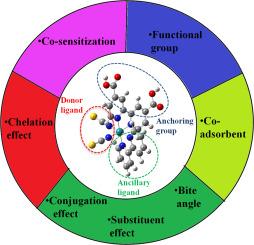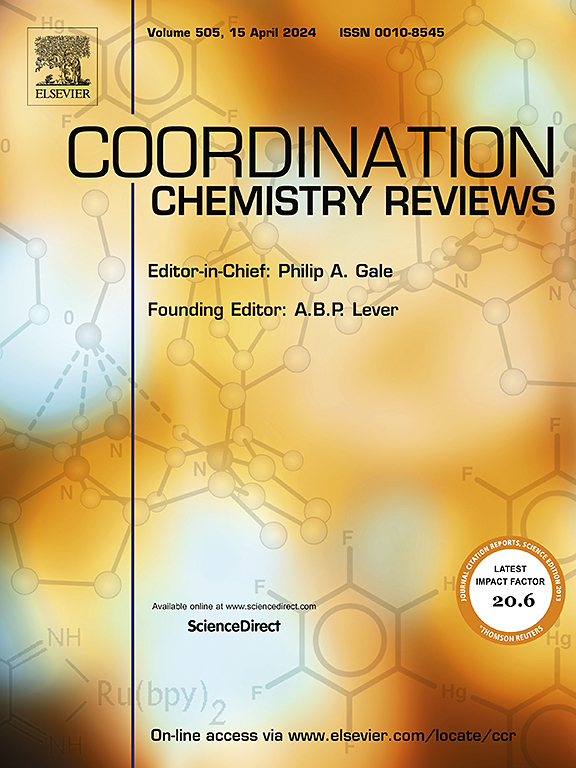Advancements in ruthenium-based sensitizers for dye-sensitized solar cells - from structural tailoring to AI-ML
IF 20.3
1区 化学
Q1 CHEMISTRY, INORGANIC & NUCLEAR
引用次数: 0
Abstract
The global focus on sustainable energy sources has intensified amidst concerns over environmental degradation caused by fossil fuel consumption. Solar energy stands out as a promising renewable alternative due to its abundance and eco-friendliness. Photovoltaic technology, particularly dye-sensitized solar cells (DSSCs), has garnered significant attention for its cost-effectiveness, indoor operability, and adaptability to varying light conditions. Despite their potential, DSSCs require further enhancement in efficiency and stability for widespread adoption. Among the various sensitizers explored for DSSCs, ruthenium-based complexes have emerged as highly efficient candidates, owing to their unique photophysical properties. This review delves into the structural modification of ruthenium sensitizers to optimize absorption spectra and device efficiency. Additionally, it highlights recent advancements in leveraging experimental and computational approaches, including AI-ML programming, to facilitate the design and development of efficient ruthenium-based DSSCs. This comprehensive overview provides insights into the current state and prospects of ruthenium-based sensitizers in advancing DSSC technology.


求助全文
约1分钟内获得全文
求助全文
来源期刊

Coordination Chemistry Reviews
化学-无机化学与核化学
CiteScore
34.30
自引率
5.30%
发文量
457
审稿时长
54 days
期刊介绍:
Coordination Chemistry Reviews offers rapid publication of review articles on current and significant topics in coordination chemistry, encompassing organometallic, supramolecular, theoretical, and bioinorganic chemistry. It also covers catalysis, materials chemistry, and metal-organic frameworks from a coordination chemistry perspective. Reviews summarize recent developments or discuss specific techniques, welcoming contributions from both established and emerging researchers.
The journal releases special issues on timely subjects, including those featuring contributions from specific regions or conferences. Occasional full-length book articles are also featured. Additionally, special volumes cover annual reviews of main group chemistry, transition metal group chemistry, and organometallic chemistry. These comprehensive reviews are vital resources for those engaged in coordination chemistry, further establishing Coordination Chemistry Reviews as a hub for insightful surveys in inorganic and physical inorganic chemistry.
 求助内容:
求助内容: 应助结果提醒方式:
应助结果提醒方式:


